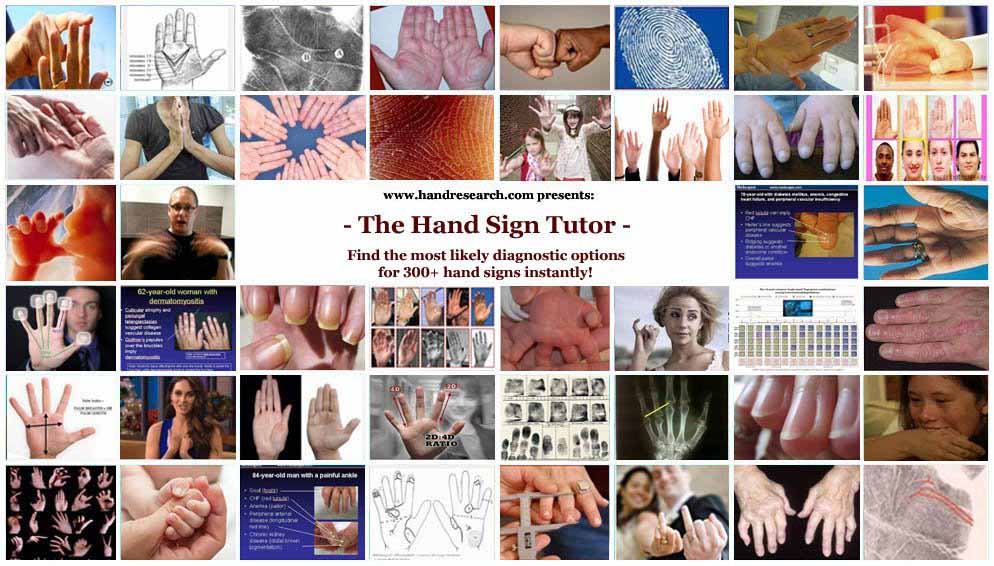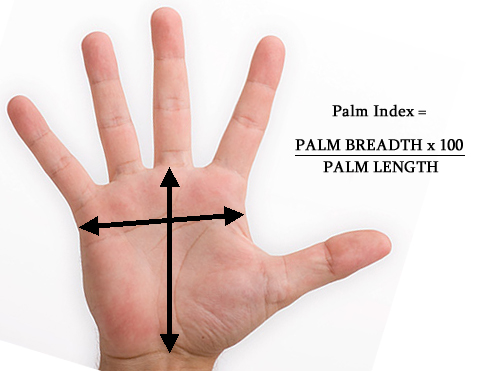- Hand Sign Tutor: a scientific hand reading tool, ranks conditions for 300+ hand signs -
Broad palm: PB/PL > 0,81 (= high palm width vs palm length ratio)Prevalence in general population (GP): relatively common [~16% | 1:1 | weight: 1.00]
to have an association with multiple psychology- and/or health related themes; a solid assessment always requires a consideration of hand sign combinations! |
TIP: 20+ Articles & news items involving palm shapes
are available in the hand biometry news section!

|
|
© COPYRIGHT 2002-2017: |
